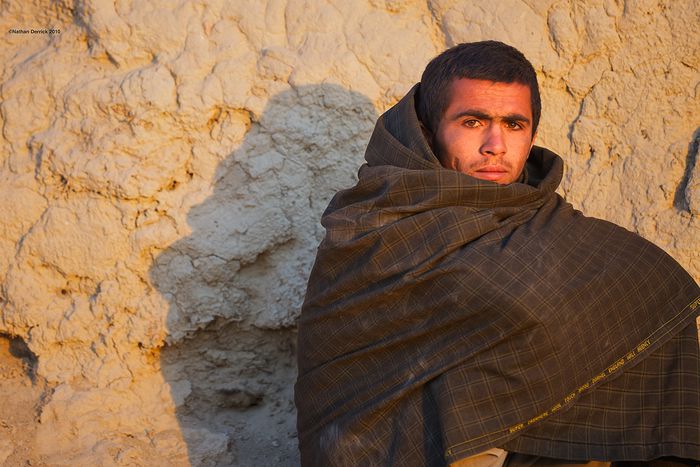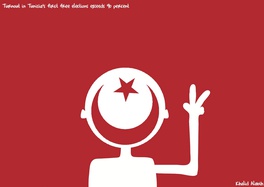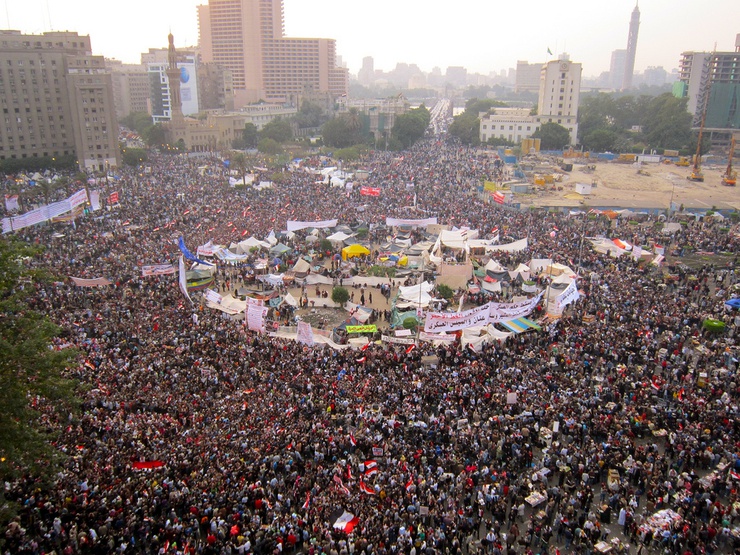
Romance and demons of 'Arab spring' and 'islamist winter'
Published on
Translation by:
 Tara Ostiguy
Tara Ostiguy
The revolutionary euphoria of the Arab uprising gave way to a complex and arduous process of transitions and shifts in the balance of power - processes that in North Africa have included the rise to power of islamist parties
Following the revolts of the Arab spring, we witnessed the triumph of islamist political parties: Ennahda in Tunisia, the muslim brotherhood in Egypt and the justice and development party in Morocco. It is very likely that they are receiving successful results in Algeria, Yemen and Libya as well. The European youth who saw their 'indignation' reflected in these revolts are now asking themselves: why all this fighting so that the islamists can end up in power?
Although it weighs heavily on us, Tahrir Square is not Egypt. To think that the Arab world is not ready for democracy more likely demonstrates the limits of our own vision of democracy. According to Eduard Soler I Lecha, expert on the Arab world at the Barcelona centre for international affairs (Centro de Estudios y Documentación Internacional de Barcelona, CIDOB), the problem lies in 'frustrated expectations following the romanticisation of the revolts, in addition to the demonisation of the islamic mark.' But who are the islamists?
What is Islamism?
 Islamism emerged as an intellectual current at the end of the nineteenth century. The decline of the islamic world, confronted by the threat of the colonial powers, led to a search for alternatives at the roots of islam. In 1928, in an Egypt that was still under British tutelage, the first islamic political organisation, called the muslim brotherhood, was created. It was heavily repressed for part of the twentieth century by various regimes and occasionally used as a counterweight to right-wing movements. However, starting in 1967, following the defeat of Arab troops by Israel in the six-day war, islamist movements consolidated into the principal opposition to regimes that intended to perpetuate their own power under the guise of nationalist rhetoric. Moroccan political analyst Mohammed Tozy stresses that in the year 2000 islamist organisations began to opt for pragmatic tactics and start to accept the rules of the democratic game.
Islamism emerged as an intellectual current at the end of the nineteenth century. The decline of the islamic world, confronted by the threat of the colonial powers, led to a search for alternatives at the roots of islam. In 1928, in an Egypt that was still under British tutelage, the first islamic political organisation, called the muslim brotherhood, was created. It was heavily repressed for part of the twentieth century by various regimes and occasionally used as a counterweight to right-wing movements. However, starting in 1967, following the defeat of Arab troops by Israel in the six-day war, islamist movements consolidated into the principal opposition to regimes that intended to perpetuate their own power under the guise of nationalist rhetoric. Moroccan political analyst Mohammed Tozy stresses that in the year 2000 islamist organisations began to opt for pragmatic tactics and start to accept the rules of the democratic game.
It is a heterogeneous political current that holds as one of its only common characteristics the application of religious principles and values to political action. The range of islamist movements and parties span from those who are willing to accept the 'civil state' to radical movements that altogether reject democracy as a political system. While some support secular legislation, others look to reconcile it with islamic legislation; some look to sharia as a potential source of law while other more radical organisations see it as the only source of legislation. From this varying range of political approaches arises the difficulty of denominations. We have certainly heard of 'moderate islamism' to describe those parties that have recently risen to power. The justice and development party (AKP) in Turkey, for example, uses the term 'islamo-democratic', a clear analogy with christian democracy in Europe. Experts such as Olivier Roy speak of 'post-islamist' movements. Even still, that 'moderate' parties have received popular support in these elections is less surprising than the rise of salafi groups such as Al-Nour in Egypt, whose agendas promote constraints to personal liberties.
Democratic parties?
The common denominator between islamic political parties is that they are populist and well established in their regions. So what explains their electoral triumphs? The common denominator between islamist political parties is that they are populist and well established in their regions. They have created a dense web of social services that supply the needs of the middle and lower classes. They champion social justice and the fight against corruption and have the potential to do so because, as yet and unlike secular parties, they have been systematically excluded from power. The islamist movements have presented themselves as victims of the old regimes with the will to re-establish order, an attractive proposal to silent masses that have lived through a period of revolution and turbulent changes. What is more, they have introduced a moralising political rhetoric that denounces corruption as an act of depravity and sin, a discourse that resonates with a society fed up with years of corruption and abuse of power.

It cannot be said that islamist parties are necessarily undemocratic. If democracy is to be understood as competing in free elections and adhering to their results, islamist parties are democratic in as much as they follow the rules of the game. However, only time will tell if they are democratic in the more profound sense of the word: respect and inclusion of minorities and the alternation of power. One of the greatest risks to the Arab world, as Eduard Soler I Lecha notes, may be that these parties understand democracy as the imposition of the majority over the minority. They could impose their ideas without respect or consideration to the latter. Another danger would be the rise of extremist forces in the event that these governments are not able to fulfill the expectations of the citizenry. For Soler I Lecha, the solution can only be found in abundant constitutional agreements and the construction of an inclusive political system. Although Tahrir Square is not Egypt, we cannot forget that it is a part of Egypt.
Images: main (cc) Nate Derrick; in-text election drawing Egypt (cc) Khalid Albahid; Tahrir square (cc) Gigi Ibrahim/all courtesy of flickr/ video (cc) euronews/ youtube
Translated from Después de la Primavera Árabe, el Invierno Islamista: ¿Decepcionados?


